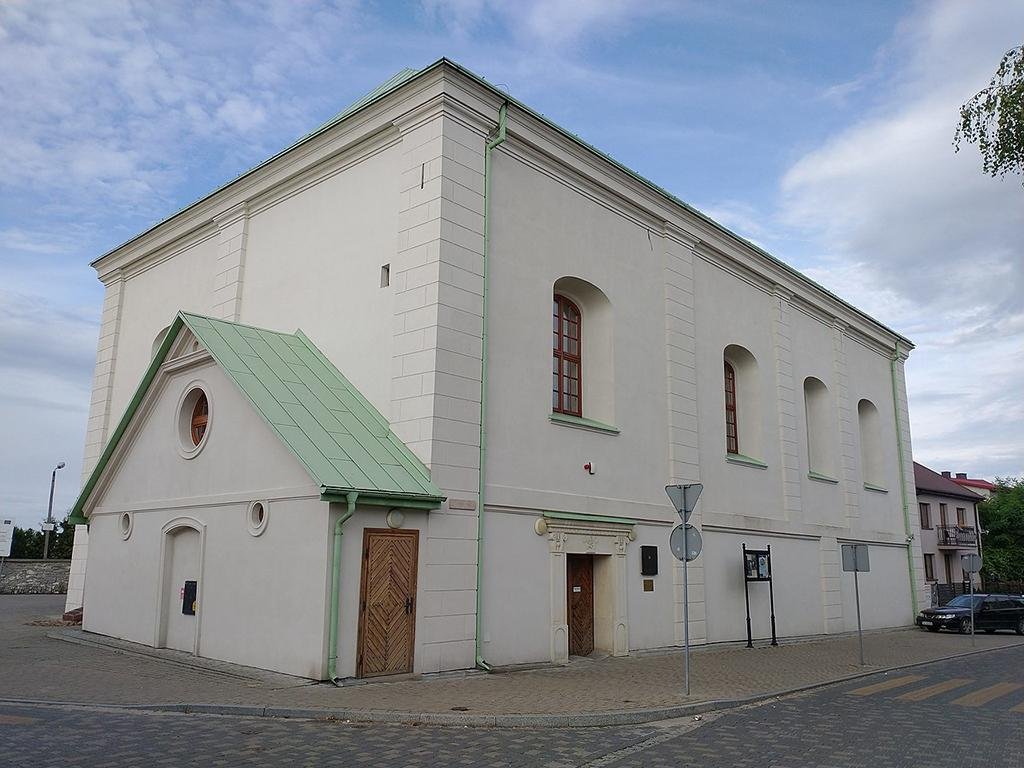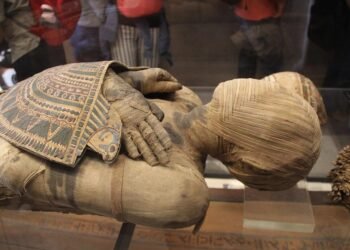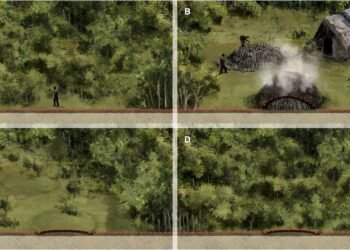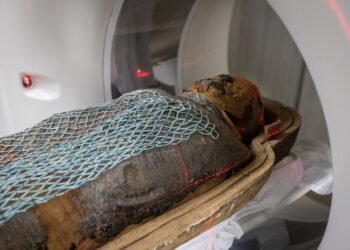A businessman and amateur historian has unearthed a significant piece of Jewish heritage in an unlikely location—the basement of a former nightclub in Chmielnik, Poland.

Marian Zwolski, a Chmielnik native, purchased the Sphinx nightclub 15 years ago, unaware of the hidden treasure beneath the building’s dance floor. Upon opening the basement door, he was greeted by an astonishing sight: a large mikveh filled with water, adorned with blue-and-white floor tiles and Stars of David on the walls. A smaller mikveh, likely used by women, was discovered in a neighboring room.
Before the Holocaust, Chmielnik was home to a vibrant Jewish population, with Sephardic Jews who had fled Spain during the Inquisition settling there and eventually building a synagogue in 1638.
In the late 19th and early 20th centuries, Chmielnik boasted a Jewish population comprising approximately 80% of its residents, contributing significantly to the town’s cultural and economic diversity. The synagogue now stands as a museum, meticulously preserving the historical and cultural legacy of the town’s Jewish inhabitants.
However, World War II and the Nazi occupation marked a dark chapter in Chmielnik’s history. In 1939, the town suffered the horrors of the Holocaust as prominent Jewish figures were rounded up and a study hall was set ablaze, taking many lives.
Survivors were subjected to forced labor, and in 1942, the ghetto was extinguished, leading to the deportation of thousands to the Treblinka death camp. This devastating event drastically reduced the Jewish population in Chmielnik to just four individuals.
Meir Bulka, who advocates for the preservation of Jewish heritage in Poland, expressed his amazement in an interview with Haaretz, describing the basement as a “time capsule” that transports visitors to another era.
Ritual purity is a significant aspect of Jewish faith and culture, and mikvehs play a vital role in achieving this purity. They are used for spiritual rebirth before religious ceremonies or holidays, and women traditionally use them after menstruation before resuming marital relations with their husbands.
It serves as a poignant reminder of the resilience of Jewish communities in the face of adversity and the importance of preserving their cultural heritage. Zwolski, who also operates a funeral home in nearby Kielce, a site of a 1946 anti-Semitic pogrom that claimed the lives of 42 Jews, hopes to transform the mikveh into a tourist attraction or museum.
“I was born and raised here, so I care about the history of the place. I don’t want it to disappear,” Zwolski emphasized. He extended an appeal to all, especially the Jewish community, to ensure that this significant historical site is preserved and memorialized.






















